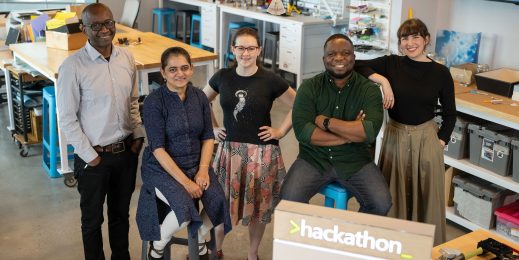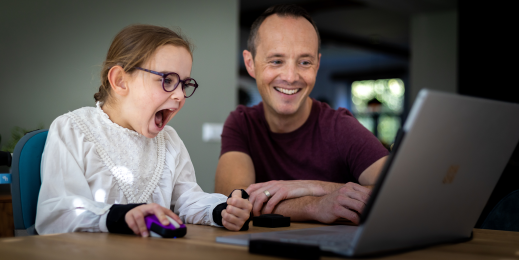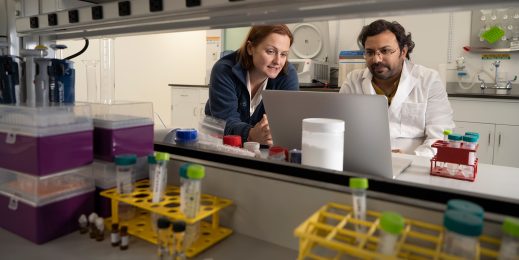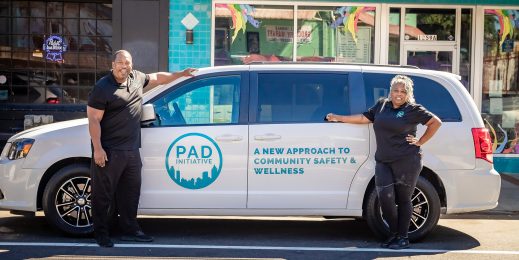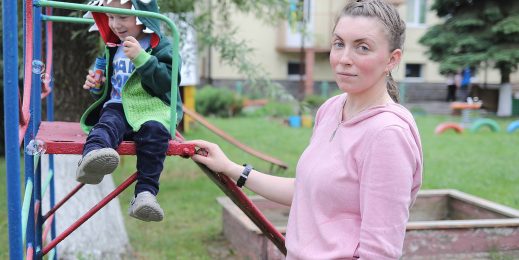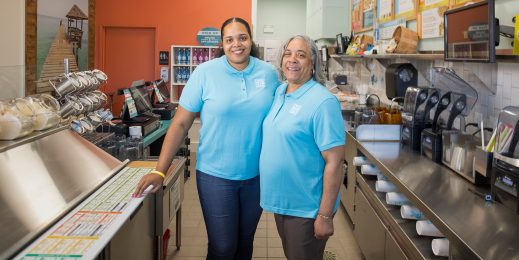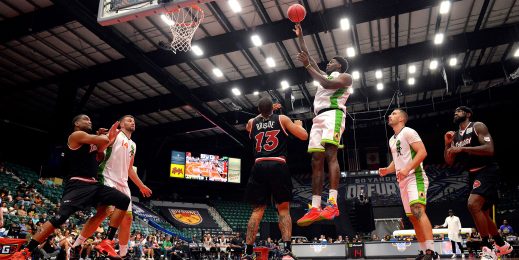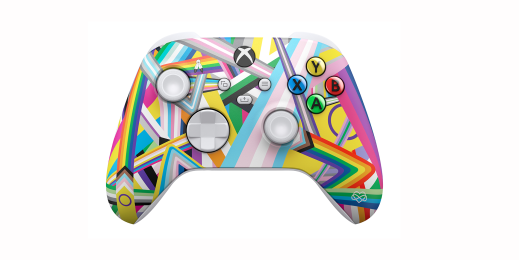
Athletes bring home medals and memories
Xing Le left China and the baby boy she adores for the first time to compete in this year’s Special Olympics World Games in Los Angeles. The gymnast now returns to her family and country with five gold medals.
Rigorous training and unwavering dedication paid off for the proud new mom and three other athletes Microsoft followed through the massive event, which wrapped up in Los Angeles on Sunday with closing ceremonies. Each had the chance to compete on a worldwide stage, feel the loving support of their families and reach for their personal best.
With “the encouragement from my teacher and coach, as well as the support from my teammates and family, I always want to do the best I can do,” Xing Le says. “I get more self-confidence, and it also changes my perception of the world.”
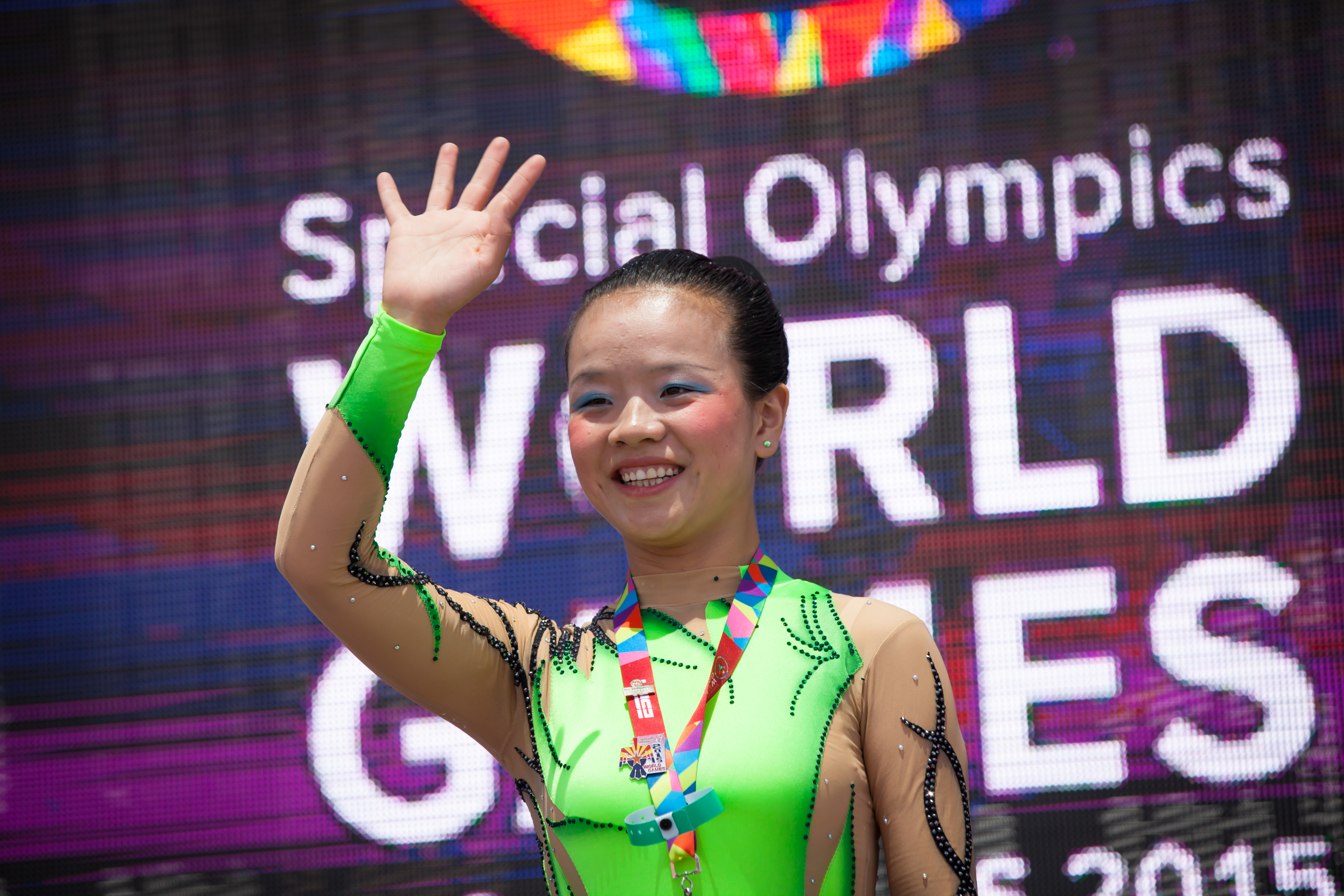
The 23-year-old says her family has been “very supportive” through her training for the competition.
“They took care of my son every day when I was away. When I would come home and hold my son, I would feel very happy,” she says. “They just told me to relax and not be too nervous, and I got five gold medals. So they are very happy for me.”
Xing Le, whose grace and skill shine in her rhythmic gymnastics routines, won gold for her rhythmic hoop, ball, ribbon and rope routines, as well as winning the all-around competition.
Microsoft gave Xing Le and the three others Surface Pro 3s, Lumia smartphones and other devices to help them train for the games – the largest sports event in the world this year – and document their remarkable journey.
Microsoft joined Special Olympics in a three-year, multimillion dollar partnership to modernize the nonprofit’s games management system, bringing it to the cloud, and donated more than 2,000 devices including PCs, laptops, tablets and Lumia phones to help track the events and connect volunteers.
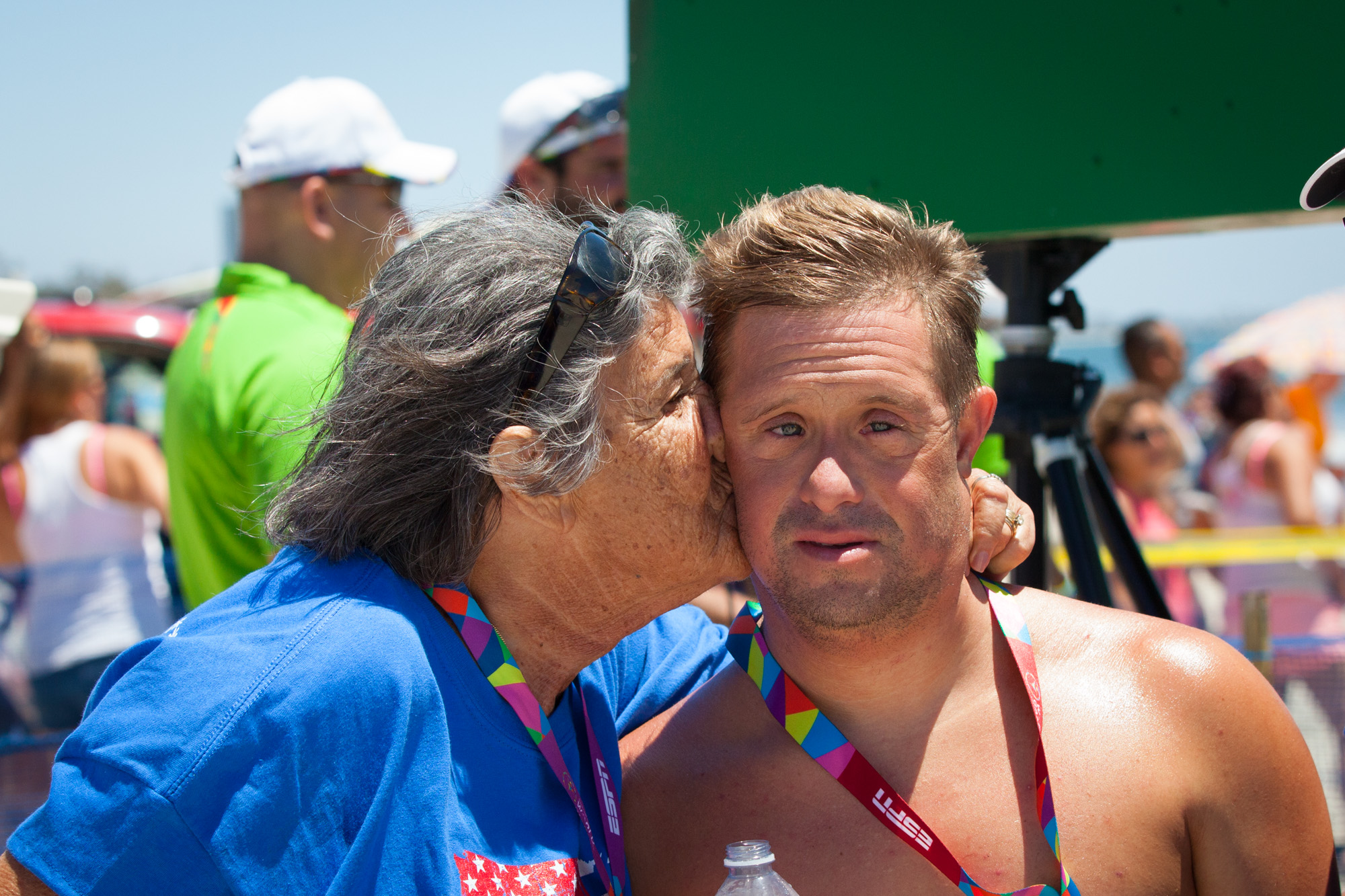
Andy Miyares, 32, won silver medals last week in the 1,500-meter open water swim and the 4×100-meter relay, and he earned a bronze in the 800-meter freestyle.
The Miami athlete, a competitive swimmer since age 6, has won hundreds of medals and broken dozens of records. He spends at least two hours in the pool every day.
“Sports has given me the ability to know that I can do anything I want to do,” he says. “I like to be in water, every morning, every afternoon and every day.”
And in everything he does, his mother, Ana, has been by his side. He knows how much her love and support has meant in his many accomplishments.
“My mother helped me get here,” Miyares says.
Special Olympics is the world’s biggest sports organization for people with intellectual disabilities. About 6,500 people from 165 countries competed in the games.
“Special Olympics is a dream to any mom, any family, any brother, any parent,” says Ana Miyares, adding that her son is “the center of our family. Everybody’s proud of him.”
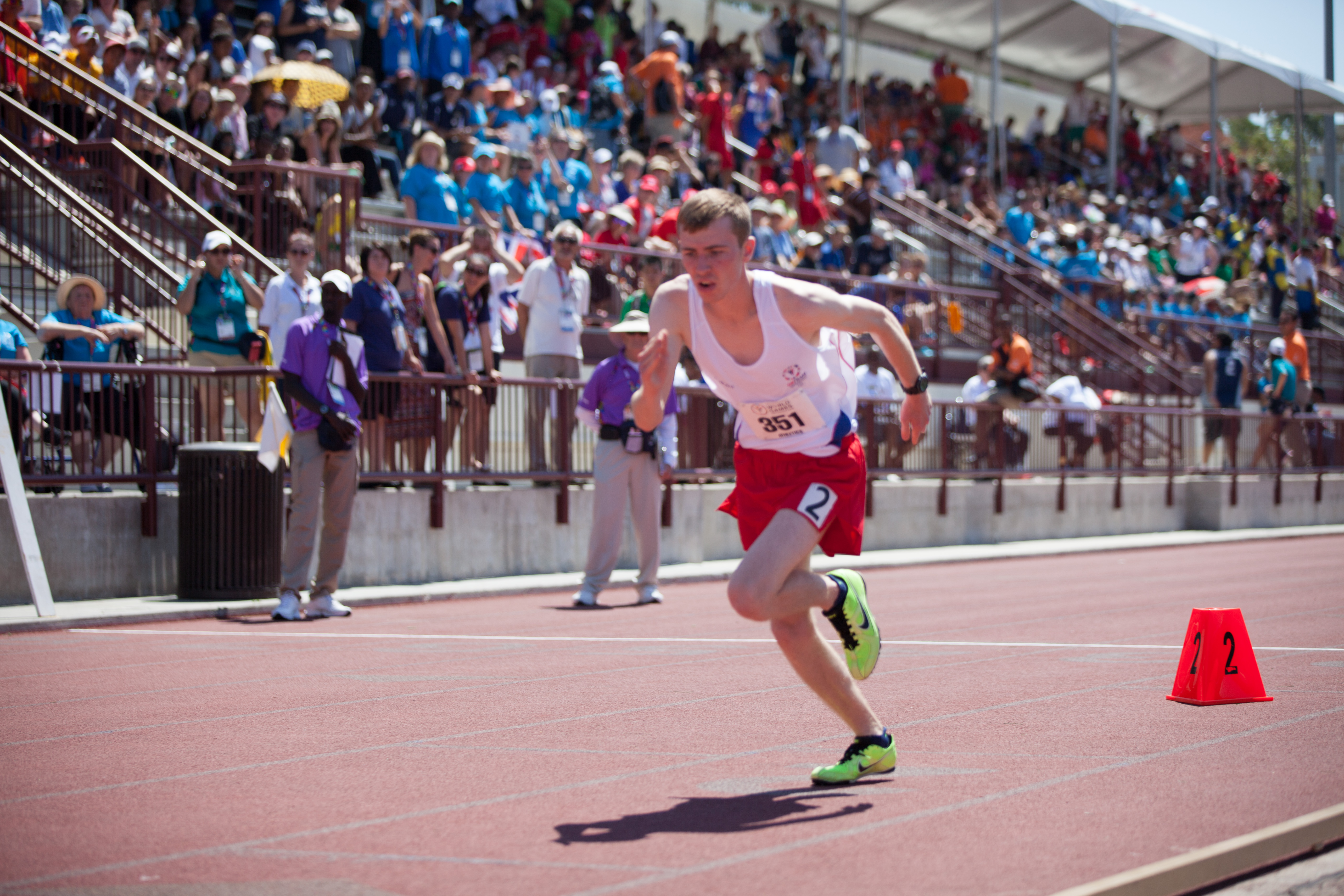
Runner Daniel Wolff and his family had high hopes he could do what his great-father did in the Olympics almost 80 years ago: bring home gold.
Mission accomplished. The 21-year-old won gold in the 400-meter race; he also scored a bronze with his team in the 4×100-meter relay and placed fifth in the 800-meter run.
As if that wasn’t enough, he ran the 400-meter in 56.85 seconds, shaving more than a second off of his previous personal best time.
“I am a fast sprinter, and I do enjoy sprinting a lot more than long distance,” he says. “It feels like I’m going over the limit.”
Wolff had never before been to the United States and had been “half excited and half nervous” about going to the games. He was glad his many relatives — parents, brother, sister, grandparents and more — were joining him.
Wolff’s father, Paul, loves the idea that his son went for gold the same way that his grandfather did in 1936 before an enthusiastic crowd in Berlin. He was excited that his son had such a great opportunity to compete with thousands of other top athletes.
“To me it’s not so much about the disability; it’s about the ability of the person,” he says, adding that his son’s remarkable ability is “to do some great running.”
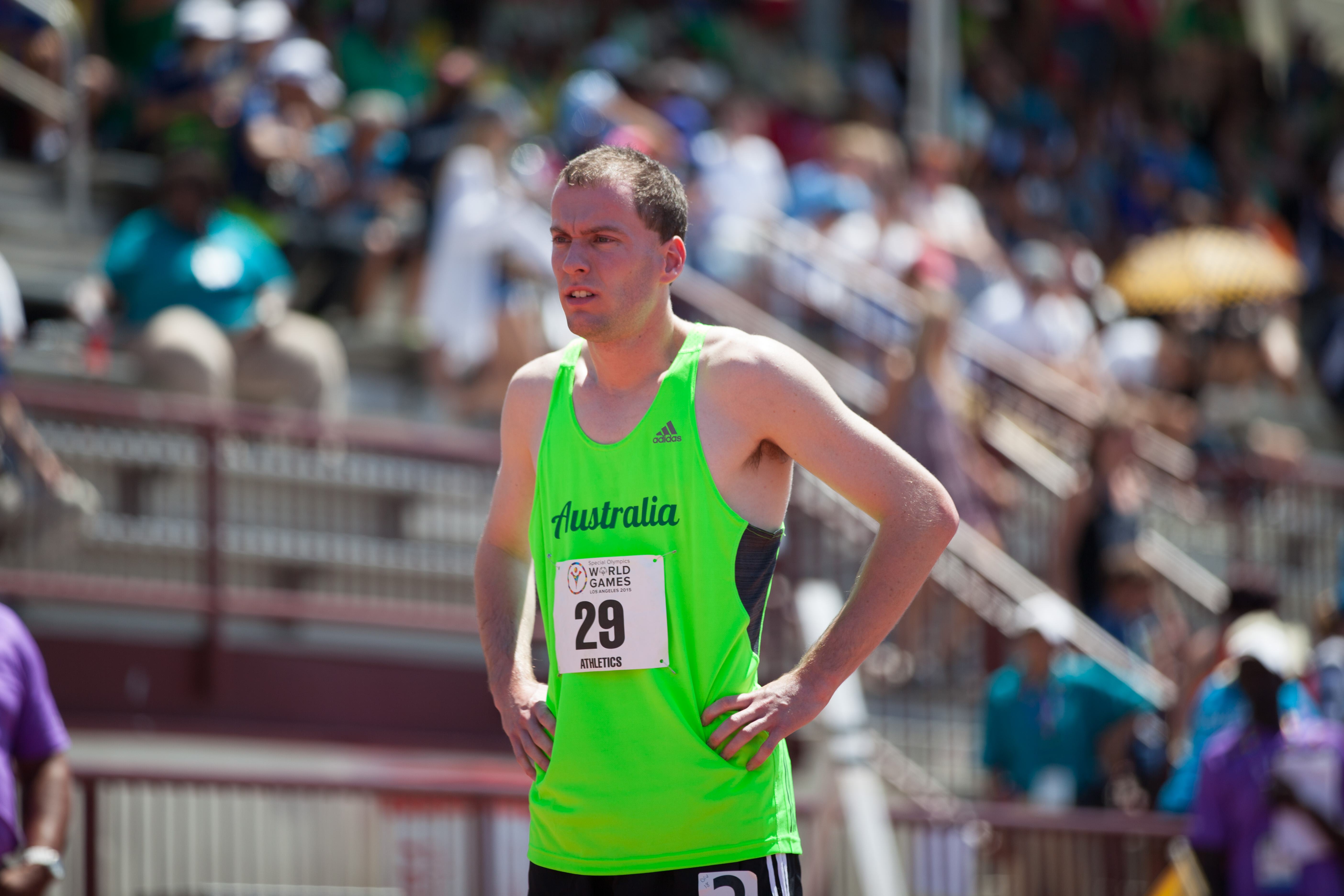
Matthew Pascoe, a quadruplet who has the support of his three sisters, won gold in another division of the 400-meter race, took fourth in the 4×100-meter relay and placed fifth in the 200-meter run.
The 25-year-old Australian credits his sisters for being his role models, helping him at school and rooting for him at races. He is glad to have the encouragement he gets from the people who are closest to him.
“I like feeling the support from my family and coaches,” says Pascoe, who also won gold and silver at the 2011 World Games in Athens.
He trains six days a week in a tough regimen that includes predawn runs, hill runs and more. Special Olympics has helped him make friends and build confidence, all while showcasing a talent for speed and determination to do his best.
Pascoe’s family came to Los Angeles to cheer him on as he competed among thousands of others who were pushing themselves to achieve new personal records and reach for gold.
“They are true athletes,” says Pascoe’s dad, John, “in every sense of the word.”






